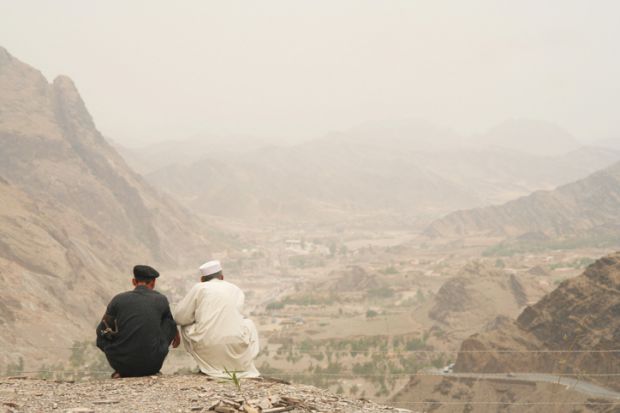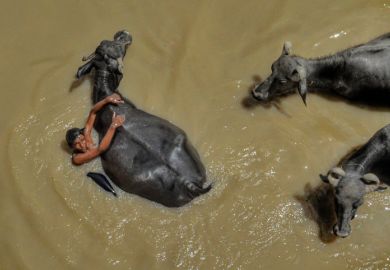A leader in Pakistan’s higher education sector has hailed a decision by the government to establish a public university in the country’s recently merged tribal territories, which is expected to improve access to education in the former Taliban stronghold.
After a decade of deadly military operations, Pakistan’s government wrested the Federally Administered Tribal Areas (FATA) from local fighters in 2018, officially integrating the land into its north-western province of Khyber Pakhtunkhwa.
While the move brought hopes of improvement, residents in the FATA region continue to be among the country’s poorest. According to a 2016 United Nations report, 73 per cent of people there lived in “multidimensional poverty” – lacking money, basic infrastructure and education.
Violence and religious extremism have long thrived in the area, which comprises seven districts, including the mountainous Khyber and North Waziristan, where soldiers continue to clash with militants.
The recent move to establish a university in the area recognises its desperate need for education, some academics have said.
Sajid Hussain Turi, Pakistan’s federal minister for overseas Pakistanis and human resource development, announced that a science and technology university would be established in the town of Parachinar, the capital of the Kurram tribal district, according to local media.
The minister also announced the government’s intention of establishing universities in all the tribal districts.
Murtaza Noor, national coordinator of Pakistan’s Inter University Consortium for the Promotion of Social Sciences, the largest network of Pakistani universities, praised the decision.
“There is [a] dire need to equip the youth with modern knowledge and skills so that they may positively contribute to the socio-economic development of their region,” he said.
“Specific subjects may be offered in these newly established universities…which should be aligned with local needs and may help in improving economic conditions of the region.”
The university would become the second public institution in the area, joining FATA University, which was established in 2016 – before the territory came under Pakistan’s control.
Previously, most students there would have lacked access to education locally, needing to travel to universities farther afield in the Khyber Pakhtunkhwa province.
Since the 1970s, top-ranked institutions including the University of Islamabad and Quaid-i-Azam University have reserved some places for FATA students – but those lucky enough to attend have accounted for a tiny minority of the region’s residents.
Professor Noor suggested that in the future, financial constraints might make it more economical to establish branch campuses of FATA University rather than starting new institutions. Still, he praised the creation of any new opportunities for higher education in the territory, which he said could make a big difference for those unable to leave the district.
“It will also increase access to higher education, especially among female students, as their parents feel reluctant to send their daughters to the colleges and universities situated in other cities,” he said.
Register to continue
Why register?
- Registration is free and only takes a moment
- Once registered, you can read 3 articles a month
- Sign up for our newsletter
Subscribe
Or subscribe for unlimited access to:
- Unlimited access to news, views, insights & reviews
- Digital editions
- Digital access to THE’s university and college rankings analysis
Already registered or a current subscriber?








